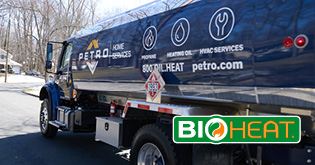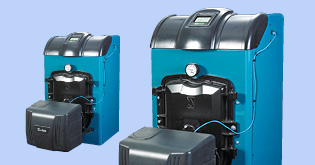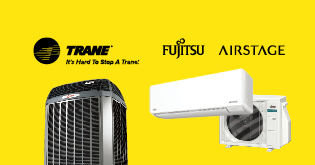- My Account:
- Sign In
- Register
- Make Payment

Propane vs. electric heating: comparing costs and benefits.
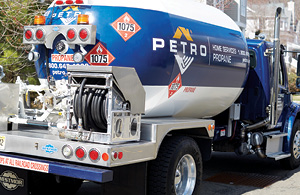
Heating with propane is more economical and efficient than electric heat. Virtually anything in a house, restaurant or building that can run on electricity can run on propane.
Calculating the cost of propane vs. electric heating.
The cost of a propane-fueled home is less than the cost of electric heat. The costs of electricity and propane home heaters can be compared and calculated using the BTU (British Thermal Unit), which measures the heating value of each fuel. National fuel prices from the U.S. Department of Energy show that historically the cost of electricity is more than twice the cost of propane. While electricity is measured in hard-to-understand "kilowatt hours," propane is measured in familiar "gallons" with propane, what you see is what you get.
Pros and cons of propane vs. electric heating.
Propane is cheaper than electric.
According to the U.S. Department of Energy, heating a home in the U.S. with a propane heating system costs far less than heating with an electric system. In addition, over time, propane water heaters can cost one-third less to operate and heat water twice as quickly as electric water heaters.
Propane is warmer than electric.
A propane powered furnace heats air from 130°F to 140°F and operates in short intervals to minimize operating costs. An electric heat pump produces heat below body temperature (98.6°F), so the air actually feels cool when placing your hand in front of a vent.
Propane furnaces last longer than electric heat pumps.
Propane-fueled furnaces last 5 to 10 years longer than electric heat pumps, on average. Your furnace is one of the most important investments and appliances in your home. Investing in equipment built to last, like a propane furnace, means you will save money on repairs and replacements in the long run.
Related: When should you repair or replace your propane furnace?
Propane is more dependable than electricity.
Propane can be stored safely in a tank on your property, while electricity is subject to power outages. You can rely on propane to work when and where other energy sources don't – which makes it quite versatile.
Propane is clean and eco-friendly.
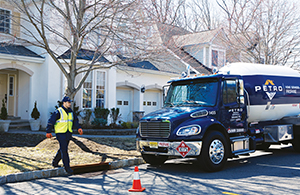
Propane has long been recognized as "green" energy. By using it, homeowners can help cut emissions and protect the environment. Propane is an approved alternative fuel listed in both the Clean Air Act of 1990 and the National Energy Policy Act of 1992. Moreover, because propane is gas heat, it doesn't spill, pool, or leave a residue.
Related: Eco-friendly heating options for your home
Propane is safe.
Propane has a remarkable safety record, due in large part to the stringent codes and regulations developed by the propane industry and the National Fire Protection Association (NFPA). Propane heat also has built-in safety properties: It won't ignite when combined with air unless the source of ignition reaches 940°F. Propane gas is non-toxic, produces minimal emissions and is not harmful to soil or water.
Propane is customer-friendly.
With propane, you get 24/7 customer service and support from your local Petro team - who all live and work where you do - not from the big power companies.
For the same heating value, propane offers remarkable savings and benefits over electricity, even when you break it down by appliance:
Propane furnaces vs. electric heat pumps.
- Consistently supply air at 120°F while electric heat pumps dispense 95°F air, which is less than body temperature (98.6°F), so the air feels cool, not warm
- Last an average of 20 years, while electric heat pumps last an average of 12 years
- Have lower repair costs than electric heat pumps
Propane water heaters vs. electric.
- Cost approximately $10 less per month to operate than comparable electric units
- On average are 42% less expensive than electric heaters so over an average life span, they can save homeowners nearly $2,000 more than an electric unit
- Heat more than twice as much water in an hour as comparable electric models
Propane-burning fireplaces vs. electric.
- Cost between 30% and 60% less per hour of operation than wood-burning fireplaces
- Emit 40 times fewer emissions than wood-burning units and cost less to operate
- They can be turned off easily with a switch, eliminating concern about remaining embers
Propane-burning cooktops and ovens vs electric.
- Offer instant heat and absolute temperature control — 97% of professional chefs prefer cooking with gas heat
- Propane gas clothes dryers can complete drying tasks in approximately three-quarters of the time it takes an electric unit
- Some models save up to 65% in costs over electric dryers
Related: Get the facts about propane
Switching to propane is easy with Petro Home Services. We can handle all of your home propane needs. Call 888.735.5651 for more information.
Explore Propane Services & Delivery Options in Your Area from Petro
Find propane services near you.
Petro Home Services is proud to not only serve communities in DC, CT, MA, MD, NJ, NY, PA, and RI but we also proudly acknowledge the skills and experience of our expert team behind all resources. With insights on topics ranging from heating oil facts to common air conditioning questions, you can rely on Petro Home Services for facts and information to help you understand more about your heating, cooling and home comfort needs. This article and all articles on the Petro Home Services website have been approved by our team of home service experts.

